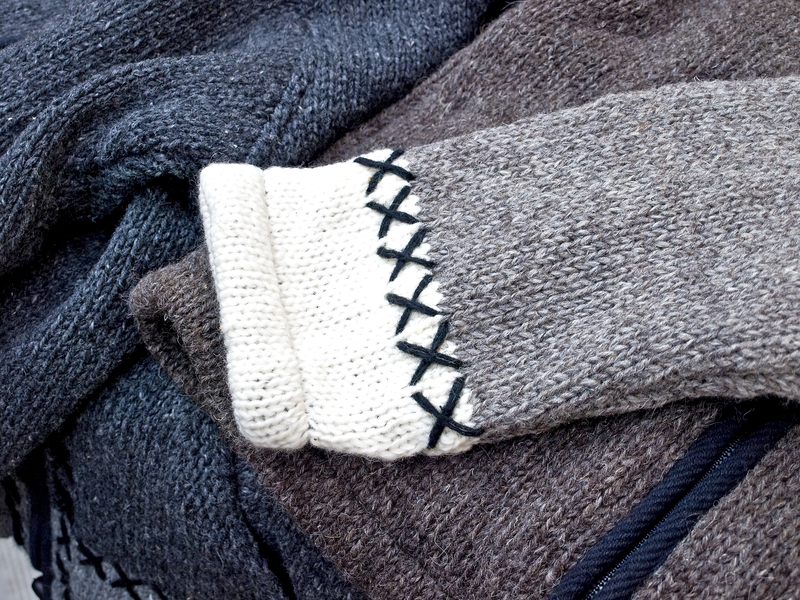Finding New Homes for Your Unused or Broken Chargers
In the age of rapid technological advancements, it's no surprise that most households accumulate a drawer--or even a box--filled with unused or broken chargers. Whether you recently upgraded your phone, changed gadgets, or simply found yourself with tangled, defunct cords, you may wonder what to do with these old power supplies. Don't let your unused chargers gather dust or, worse, end up in a landfill. There are numerous sustainable and practical options for finding new homes for your old and broken chargers.
Why Should You Rehome or Recycle Your Old Chargers?
- Environmental Impact: Electronic waste, or e-waste, is a rising global problem. Chargers and cables contain valuable materials such as copper and sometimes hazardous substances. Improper disposal can be harmful to the environment.
- Declutter Your Space: Rehoming or responsibly recycling unused or broken chargers frees up valuable space and minimizes clutter in your home.
- Supporting Causes: Many organizations repurpose functioning chargers for those in need, reducing electronic waste and supporting social causes.
By taking small steps, you can make a big difference--both for your home and the planet.

Assessing Your Collection: Which Chargers Can Be Reused?
Before taking action, sort through your collection to separate unused chargers that still function from those that are broken. Chargers that are still operational may be donated or given away, while broken chargers require responsible recycling.
- Check for Compatibility: Some chargers are universal and can be used with multiple devices, while others are brand-specific.
- Test for Functionality: Plug in each charger to ensure it's still working. If uncertain, try it with a compatible device.
- Inspect for Damage: Look for exposed wires, frayed cables, or bent prongs. Damaged chargers are unsafe and should not be reused as-is.
Tip: Keep any charging cables or power adapters that are compatible with multiple devices or brands, as they may still be valuable to others.
Donate Your Unused Chargers: Give Them a Second Life
If your chargers are still in good working condition, consider donating them. There are organizations, schools, and individuals that eagerly accept pre-owned phone chargers, laptop adapters, or various electronic cords.
Places to Donate Working Chargers
- Charities and Nonprofits: Some organizations distribute small electronics to those in need, such as shelters, community centers, or programs supporting low-income families.
- Schools and Colleges: Many educational institutions gladly accept donated chargers for students and staff.
- Libraries and Community Centers: Some public facilities offer device-charging stations for patrons and may welcome extra chargers.
- Online Freecycle Groups: Use platforms like Freecycle, Facebook Marketplace (set to "Free"), or Craigslist's "Free" section to connect with people looking for chargers.
- Local Repair Cafes: Community-run events where broken items are fixed; they may use spare parts or donate working chargers.
Pro Tip: Before donating, wipe down your charger with a disinfectant wipe and, if possible, label the type and compatible devices. Easy identification helps recipients put them to use faster.
Sell or Give Away: Finding New Users for Your Old Chargers
If donation isn't the right choice or you have newer, high-demand items--such as USB-C or MagSafe chargers--you might consider selling them or giving them away to someone who needs them.
How to Sell or Gift Used Chargers
- Online Marketplaces: List chargers on sites like eBay, Depop, or Mercari. These platforms cater to people looking for specific models or inexpensive accessories.
- Tech Forums and Communities: Dedicated tech forums such as Reddit's r/hardwareswap or device-specific Facebook groups are excellent for finding interested buyers or recipients.
- Yard Sales or Swap Meets: Include your spare chargers in a garage or yard sale, or trade with neighbors at local swap events.
- Workplaces: Leave a box in your office labeled "free chargers," allowing coworkers to take what they need.
Remember: Clearly state the condition and compatibility of each charger to avoid misunderstandings.
Responsible Recycling for Broken or End-of-Life Chargers
Broken chargers can't simply be tossed in the trash, as they contain materials that should be processed responsibly. Recycling ensures valuable resources are recovered and toxins are kept out of the ecosystem.
Where and How to Recycle Old Chargers
- Local E-Waste Collection Events: Check with your municipal waste center or recycling coordinator for upcoming electronic waste collection days.
- Retailer Take-Back Programs: Many electronics stores offer recycling bins for cables and chargers, including Best Buy, Staples, and Apple stores.
- Certified E-Waste Recyclers: Locate certified recyclers via websites like Earth911.com or e-Stewards.org. These recyclers comply with environmental standards and responsibly process e-waste.
Important: Never dispose of broken or damaged chargers in general household waste. They often contain metals and plastic that take centuries to decompose and can release harmful chemicals.
Mail-In Recycling Programs
Several mail-in programs accept unwanted chargers and cables--even in small quantities. Many charge a modest fee to cover shipping and responsible processing.
- Cable Recycling Programs: Companies like TerraCycle and GreenCitizen accept a variety of electronic waste through mail-in boxes you can order online.
- Manufacturer Programs: Some gadget makers accept old adapters, cables, and electronics for recycling, even if you didn't purchase the item directly from them.
What Happens to Recycled Chargers?
When you recycle old chargers, they are typically dismantled and the valuable metals (including copper and gold in connectors) are recovered and reused in new electronic products. Plastics are often recycled into new manufacturing materials, reducing the need to harvest new resources.
Creative Reuse: Upcycling Old Chargers and Cables
For those interested in creative projects and sustainable living, repurposing broken chargers and cables can be fun and rewarding. Here are some innovative ideas for giving new purpose to your old cords and adapters:
- Art Projects: Use the colorful wires and connectors in mixed-media art, jewelry, or home decor pieces.
- Cable Organizers: Remove the plugs and braid the remaining wires to create stylish cable ties or desk organizers.
- DIY Keychains or Zipper Pulls: Repurpose small or unique connectors as keychains, zipper pulls, or other accessories.
- Teaching Aids: Donate to STEM programs or schools for use in electronics experiments.
*Just be sure to take safety precautions when cutting or using electronic components, and never plug in or reuse obviously damaged cords.*
How to Prevent Unused Chargers in the Future
After responsibly rehoming your unwanted chargers, take steps to minimize electronic waste in the future:
- Opt for Universal Chargers: Choose chargers compatible with multiple devices, such as USB-C or wireless charging pads.
- Buy Only When Necessary: Resist the urge to buy spares "just in case."
- Use Durable Brands: Invest in high-quality chargers that are built to last longer.
- Share Within Your Household: Coordinate with family or housemates to avoid accumulating duplicate chargers.

The Environmental and Social Benefits of Rehoming Chargers
By thoughtfully rehoming, recycling, or reusing your unwanted or broken chargers, you help:
- Reduce E-Waste: Each charger diverted from the dump lessens the burden on landfills and reduces the release of hazardous substances.
- Conserve Resources: Recycling components decreases the need for mining new metals and manufacturing new plastics.
- Support Community Causes: Donated chargers can help students, families, and charity organizations stay connected.
- Encourage Sustainable Behaviors: Your example can inspire friends, family, and your wider community to take action.
Conclusion: Make Every Charger Count
Each unused or broken charger in your drawer is an opportunity to make a positive impact. Whether you choose to donate, sell, recycle, or upcycle, your effort contributes to a cleaner environment and a more resourceful society.
Remember: The next time you encounter a tangled mess of old chargers, don't just toss them away. With a bit of thought and action, you can find new homes for your unwanted chargers and play a vital role in the global movement toward sustainability.
Take action today--your old charger can power up someone's device, spark creativity, or contribute to a healthier planet!
```